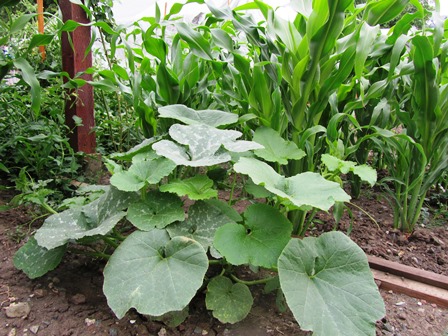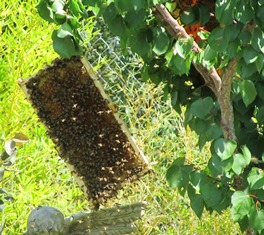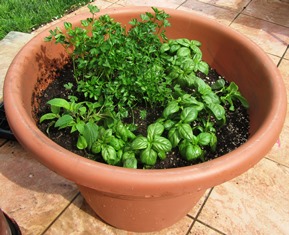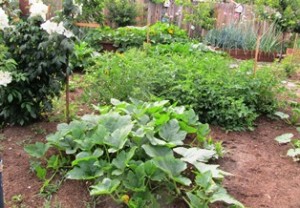Urban Farms Make Sense for Lots of Reasons
Reduce city blight. Give city residents the opportunity to farm. Grow food for low-rent residents. Eliminate illegal dumping. Create public gardens on private land until the owner decides on another use. Lower property taxes for land owners. Improve the local environment. These are just a few reasons urban farms make a lot of sense and should be promoted.
As it turns out, the city of San Francisco is leading the way. The city has a new law offering financial incentives in the form of reduced property taxes for owners of empty lots who permit agricultural use of their land for at least five years or more.
Part of the statewide Urban Agriculture Incentive Zones Act, the law encourages potential urban farmers to convert weedy, empty lots or those covered in trash into gardens. These urban farmers necessarily would have to put in resources such as labor and money but the law ensures they cannot be forced out of their contracts, thus losing their investment.
The law is the brainchild of sustainable land-use advocates and state Assemblyman Phil Ting, D-San Francisco. Cities must first pass the necessary local ordinance and San Francisco has already done that.
Urban farmers must comply with local ordinances with regard to keeping bees and farm animals. But the idea of urban gardens reducing blight (which may also be prone to illegal dumping) has wide appeal for cities eager to stabilize property values and also provide more green spaces.
While other cities in California explore the environmental benefits of urban farms (including Fresno, Los Angeles, Sacramento, San Diego, and San San Jose), San Francisco leads the way.
A city lot must meet certain qualifications: it has to be at least one-tenth of an acre. Additionally, there must be no permanent buildings on the lot. Qualified lots are re-assessed with a significantly lower tax bill for its owner.The new tax assessment is based on the average rate of irrigated farmland.
The idea of more urban farms means a win for the city, local residents, the land owners, and the environment.
Twelve Reasons to Grow Your Own Food
Doctors tell us we should eat fruits and vegetables for our health. Fresh is best. For more reasons to grow your own food, read on.
1. Enjoy Superior Flavor and Higher Nutritional Value
The flavor of produce that travels from your edible garden to your plate is far superior to that of store-bought varieties. Even before fresh produce reaches the bins of your local store, the fruits and vegetables must be picked, sorted, crated, and transported from suppliers t0 supermarkets and grocery stores. Time spent in transporting and storage can diminish food flavors and nutrient values.
2. Keep It Pesticide-Free
Go organic. Choose alternative methods (companion planting and organic sprays, for example) to treat garden pests and plant diseases. Organic farming starts with nourishing the soil, which in turn, nourishes the plants that nourishes a healthy body. Organically grown fruits and vegetables picked fresh, immediately prepared, and served are nutritionally superior than their commercially grown and stored counterparts.
3. Safeguard Your Health
Avoid the cancer-causing agents and toxic chemicals in pesticides that are commonly used on many commercially grown food products.
4. Cultivate Plant Diversity; Preserve History
Grow varieties of the vegetables and fruits you love. Or, choose cultivars that might have grown in your grandmother’s garden–a nod to preserving history. Or, plant varieties that have fallen out of favor, are unusual, or are even rare.
5. Lower Your Food Bill
Grow your own edibles and preserve them for later consumption (like freezing spring peas for a fall or winter meal). Preserving the bounty by drying or freezing or canning can reduce your grocery bills. Another cost and time saver is to grow hard-to-find varieties of heirloom herbs, vegetables, or fruits instead of tracking down sources for those items.
6. Expand Your Knowledge of Plants
Understanding the seed-to-harvest cycle in nature fosters deep appreciation for ecology and the environment and contributes to your knowledge about various plants’ needs for nutrients, water, light, and temperature. You also learn about treatment options for garden-variety pests and plant diseases. This wealth of information can be shared with younger generations who will inherit the responsibility of caring for the planet.
7. Get Exercise
You can still work out, albeit in the garden in the fresh air rather than in an indoors gym. Think about all the exercise you’ll get digging, planting, shoveling, watering, weeding, and composting. Gardening provides plenty of solid exercise and rejuvenates a weary spirit.
8. Reduce Your Stress
Time spent in a garden is restorative: it nourishes your spirit and reduces stress levels. In fact, just a few moments of deep breathing and thinking about birdsong, sunshine, fresh air, and healthy plants all around you–nature in all its splendor–can generate a positive mental attitude.
9. Alleviate Concerns about Food Safety and Quality
You know the quality of the food you bring from your edible garden to the table. You want the superior freshness, flavor, and food quality for your loved ones. The chances for food-borne illnesses of the kind that strike Americans every year and are often investigated by the Centers for Disease Control (CDC) are vastly diminished when you grow organic edibles and eat them as fresh as possible.
10. Preserve Our Planet’s Diversity
Choose seeds that are open-pollinated, non-GMO (genetically modified organism; the result of scientists engineering or modifying the genetic material of food plants). It may come as no surprise that the health of our nation has declined with the demise of small family farms even as there’s been a rise in the number of supermarkets and expansion of modern agribusiness. It’s no wonder people everywhere are getting behind buy-local, keep-it-local movements; participating in farmers’ markets, and engaging in urban homesteading where self-reliance is paramount.
11. Earn Extra Money
Selling your home-grown produce to others in your community means you can make possible the goodness of organic produce to others while earning a little money (hint: buy more seeds or otherwise reinvest in your garden).
12. Feel Good about Donating Excess Produce to a Food Bank
Your local food bank or (sometimes churches, too) will distribute donated produce to needy families. Let it be a source of joy for you that your gardening efforts have literally put food in the mouths of those in less fortune life circumstances.
 Facebook
Facebook Goodreads
Goodreads LinkedIn
LinkedIn Meera Lester
Meera Lester Twitter
Twitter








